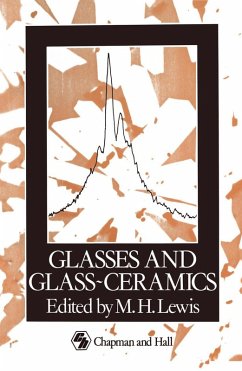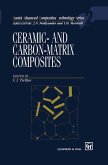The emergence of synthetic ceramics as a prominent class of materials with a unique combination of properties has been an important part of the materials-science scene over the past 20 years. These 'high-technology' ceramics have varied applications in areas utilizing their exceptional mechanical, thermal, optical, magnetic or electronic properties. A notable development of the 1970s was that of 'Si-based' ceramics (Si3N4' SiC and 'Sialons') as high-temperature engineering solids. More recently the zirconia-based ceramics have evolved as a class of material with significant improvements in fracture-toughness. In the 1980s we are on the threshold of development of ceramic-matrix composites with the promise of over coming major limitations in engineering design with 'brittle' ceramics and the development of novel properties unattainable with monolithic micro structures. Throughout this period there have been significant but less well-publicized developments in the field of glass-ceramics and glasses. It is the purpose of this publication to review selected topics within this important area of materials science. A key element in understanding the relation between properties and microstructure is a knowledge of atomic arrangement in ceramic phases. Recent developments in NMR and X-ray absorption spectroscopies have had considerable impact on studies of atomic co-ordination in glasses and crystalline ceramic materials and are reviewed in Chapters 1 and 2. Glass-ceramics are derived from the parent glasses by controlled crystal lization and have properties dictated, in part, by the efficiency of crystal nucleation within the glass volume.
Hinweis: Dieser Artikel kann nur an eine deutsche Lieferadresse ausgeliefert werden.
Hinweis: Dieser Artikel kann nur an eine deutsche Lieferadresse ausgeliefert werden.
`Without exception the ten chapters are extremely well written, with information on the latest advances in the field and future potential in terms of further developments and applications.'
Glass Technology
`A valuable reference for those who wish to keep up with recent advances in selected topics.'
Ceramic Abstracts
`...the book seems...to have succeeded in providing an excellent introduction to glass as a material and its versatile practical applications mainly for the use of materials designers and engineers.'
Indian Ceramic Society Transactions
Glass Technology
`A valuable reference for those who wish to keep up with recent advances in selected topics.'
Ceramic Abstracts
`...the book seems...to have succeeded in providing an excellent introduction to glass as a material and its versatile practical applications mainly for the use of materials designers and engineers.'
Indian Ceramic Society Transactions
`Without exception the ten chapters are extremely well written, with information on the latest advances in the field and future potential in terms of further developments and applications.'
Glass Technology
`A valuable reference for those who wish to keep up with recent advances in selected topics.'
Ceramic Abstracts
`...the book seems...to have succeeded in providing an excellent introduction to glass as a material and its versatile practical applications mainly for the use of materials designers and engineers.'
Indian Ceramic Society Transactions
Glass Technology
`A valuable reference for those who wish to keep up with recent advances in selected topics.'
Ceramic Abstracts
`...the book seems...to have succeeded in providing an excellent introduction to glass as a material and its versatile practical applications mainly for the use of materials designers and engineers.'
Indian Ceramic Society Transactions








